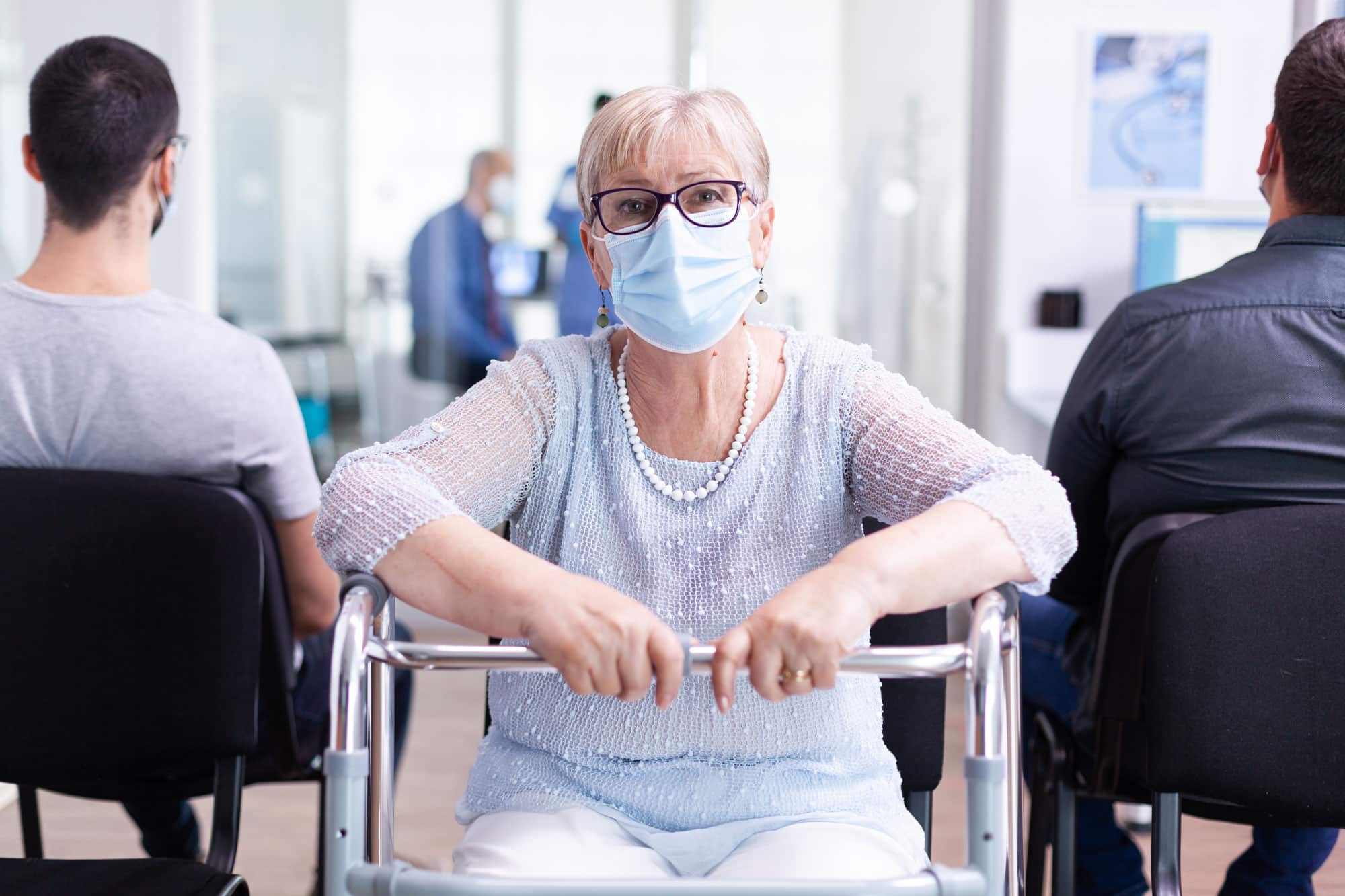In times of crisis, having a plan can make all the difference. Whether it’s a natural hazard, health emergency, or unexpected event, people living with a disability or chronic health condition may require additional strategies to ensure their health and safety.
Through an MS Australia-funded project, Crisis Resilience in MS, it was identified that the MS community had various concerns about how crises like bushfires and the pandemic affected them, with these events having a direct impact on health behaviours and outcomes.
In a study using data from the Australian MS Longitudinal Study (AMSLS), over a third of people living with MS would like to develop or update their crisis plans, and that a third of those need help with this.
Following discussions with MS community stakeholders over a series of workshops, the Australian Red Cross RediPlan was identified as a potential good resource for crisis planning. Within the RediPlan there is a suite of actions to help people prepare for crises, such as deciding on an alternate place to stay, learning about hazards in their community, developing strategies to manage stress and anxiety, discussing emergency telehealth, planning healthy habits and practicing the emergency plan.
This excellent resource has always been inclusive, recognising that individuals are best positioned to understand their own circumstances and capacity to plan effectively, including those living with a disability or a chronic health condition.
In collaboration with Australian Red Cross, MS community stakeholders, and researchers from Murdoch University and The University of Melbourne, the team have developed tailored guidance resources for people living with a disability or a chronic health condition, including MS, called the “Crisis Toolkit”.
An initial evaluation has indicated that crisis preparation actions were completed more often when people living with MS received the Crisis Toolkit and support from a MS nurse, compared to the RediPlan alone. For example, after completing the Crisis Toolkit with support from an MS nurse, most people had completed actions such as:
The initial evaluation also suggested that completion of the Crisis Toolkit made individuals feel more resilient, know how to respond in an emergency, and understand how to maintain contact with their healthcare providers
Crisis planning is important for people living with a disability or a chronic health condition because emergencies, like natural hazards (bushfires, floods, cyclones) or pandemics, can disrupt access to critical healthcare services and treatments. MS symptoms such as heat sensitivity, vision impairment, difficulty with walking or processing information, may also make responding to a crisis (e.g. evacuation or isolation) more challenging. Without a plan, these disruptions may impact safety, health behaviours and outcomes, increase stress, and result in difficulty managing daily needs.
By having a clear crisis plan, individuals can ensure they have the necessary resources, support, and information to maintain their health and safety during challenging times. Planning ahead empowers people to navigate emergencies with confidence and minimise the risk of negative health outcomes.
During COVID-19, many people with MS faced negative health impacts due to limited access to healthcare. It’s crucial to ensure ongoing access to healthcare providers and reliable health information during crises to avoid such issues. In Australia, there is little evidence of consultation with people who have chronic health conditions or disabilities when the government made decisions about restricting healthcare access during the COVID-19 pandemic. However, there are excellent examples of government consultation with other minority groups in Australia, leading to beneficial outcomes.

Published in Multiple Sclerosis and Related Disorders and supported by MS Australia, researchers conducted a study in the second year of the COVID-19 pandemic to understand the healthcare needs of people with MS. They surveyed and interviewed people living with MS and their healthcare providers, identifying three key areas of concern: health issues, access to healthcare services, and communication sources. Most people preferred receiving information from healthcare providers and websites specific to the pandemic.
These results were shared with a stakeholder group, which helped develop strategies to improve communication, healthcare access, and policies for people living with MS during crises. These strategies, created in collaboration with people living with MS and healthcare providers, are intended to help health organisations and governments better support people with chronic conditions during emergencies, such as people living with MS.
The COVID-19 pandemic had a large impact on communities around the world. Published in Health Expectations and supported by MS Australia, this study looked at how people living with MS and their carers in Australia experienced the COVID-19 pandemic. Researchers interviewed 27 participants, including people living with MS, carers and MS service providers, to understand the challenges they faced.

The results showed that disruptions to daily routines and services were major challenges for both people living with MS and their carers. Many experienced emotional and mental health issues, such as anxiety, fear of catching COVID-19, and stress in relationships. Some people living with MS also mentioned physical health impacts, while carers felt the strain of increased demands and reduced resources.
Despite these difficulties, participants also shared examples of resilience, like adapting to new routines, taking breaks, and appreciating positives such as the benefits of telehealth.
This study highlights that more support is needed to help people living with MS and their carers manage the ongoing effects of the pandemic, focusing not only on challenges but also on fostering resilience and coping strategies.
Marck, C., Galna, B., van der Mei, I., Laslett, L., Tan, J., Gibbs, L., Kermode, A., Walker, D., & Learmonth, Y. (2024). Crisis preparation for people with multiple sclerosis in Australia: A cross-sectional survey of needs. International Journal of Disaster Risk Reduction, 109. Read the MS Australia article for this publication.
Learmonth, Y. C., Hunter, A., Gibbs, L., Walker, D., Kermode, A. G., & Marck, C. H. (2023). The impact of the Australian Black Summer Bushfires and the COVID-19 pandemic on wellbeing in persons with multiple sclerosis; preparation for future and ongoing crises. Disability and rehabilitation, 45(4), 630–643. Read the MS Australia article for this publication.
Marck, C. H., Hunter, A., Heritage, B., Gibbs, L., Kermode, A. G., Walker, D. I., & Learmonth, Y. C. (2021). The effect of the Australian bushfires and the COVID-19 pandemic on health behaviours in people with multiple sclerosis. Multiple sclerosis and related disorders, 53, 103042. Read the MS Australia article for this publication.
A RediPlan is the Australian Red Cross’ household emergency plan. It helps you prepare for any type of emergency or crisis by focusing not just on survival but also on recovery. Designed to be strength-based, you can tailor it to consider your unique capacities and circumstances, creating a personalised household emergency plan that meets your specific needs.
You should review and update your RediPlan once a year, or when your circumstances change, such as moving to a new home, changes in family dynamics or health. It is also a good idea to update it when new information about potential crises becomes available.
Share your RediPlan with your personal support network. This includes trusted people outside your home who can assist you physically, offer a place to stay, provide essential information, or give emotional support during and after an emergency or crisis.
Yes, it is still a good idea to make a crisis plan, even if there have never been bushfires or floods near you. Emergencies can be unpredictable, and natural hazards are becoming more frequent and widespread. Having a crisis plan ensures that you are prepared for unexpected situations, not just bushfires or floods but also other emergencies like power outages, storms, or medical emergencies. A plan gives peace of mind and helps you respond effectively if a crisis does arise.
Several types of crises could happen to you, depending on your location and lifestyle. Natural hazards such as bushfires, floods, severe storms, or heatwaves are common in Australia, and even if they haven’t occurred near you before, changing climate patterns increase their likelihood. Medical emergencies, whether sudden illness or injury, can arise at any time, requiring quick action. Extended power outages due to weather or infrastructure issues may disrupt daily life, while pandemics or disease outbreaks, like COVID-19, can cause significant health and societal challenges. Additionally, household accidents like fires, gas leaks, or water damage are unpredictable but possible. Preparing for these scenarios can help ensure you’re ready to respond and minimise the impact on your life.
You can get help completing your crisis plan from family, friends, and potentially MS nurse and other healthcare providers. Family and friends can play a vital role in offering support and ensuring that everyone is prepared to assist during an emergency. Healthcare providers are especially important, as they can give tailored advice on managing specific medical needs during a crisis, such as medication, treatments, and mobility assistance. By collaborating with these trusted individuals, you can create a more comprehensive and effective crisis plan.
People with a disability or chronic health condition are often more vulnerable during crises due to various factors. They may face challenges accessing essential resources, such as medical care and transportation, especially if services are disrupted. Those with chronic health conditions often require ongoing treatment or medication, making it crucial to ensure these needs are met. Mobility challenges can hinder evacuation, while communication barriers may prevent them from receiving critical information. Additionally, social isolation can make it difficult to access support networks, increasing feelings of vulnerability. Developing a crisis plan to address the specific needs of individuals with a disability or a chronic health condition will ensure safety and access to resources during emergencies.
We would like to extend our gratitude to the dedicated researchers and Australian Red Cross representatives who contributed to the development of this Crisis Toolkit: Associate Professor Yvonne Learmonth, Associate Professor Claudia Marck, Dr Jocelyn Tan, Professor Petra Skeffington, Professor Lisa Gibbs, Professor Ingrid van der Mei, Professor Allan Kermode, Dr Laura Laslett, Dr Brook Galna, Emeritus Professor Di Walker and Antonia Mackay.




